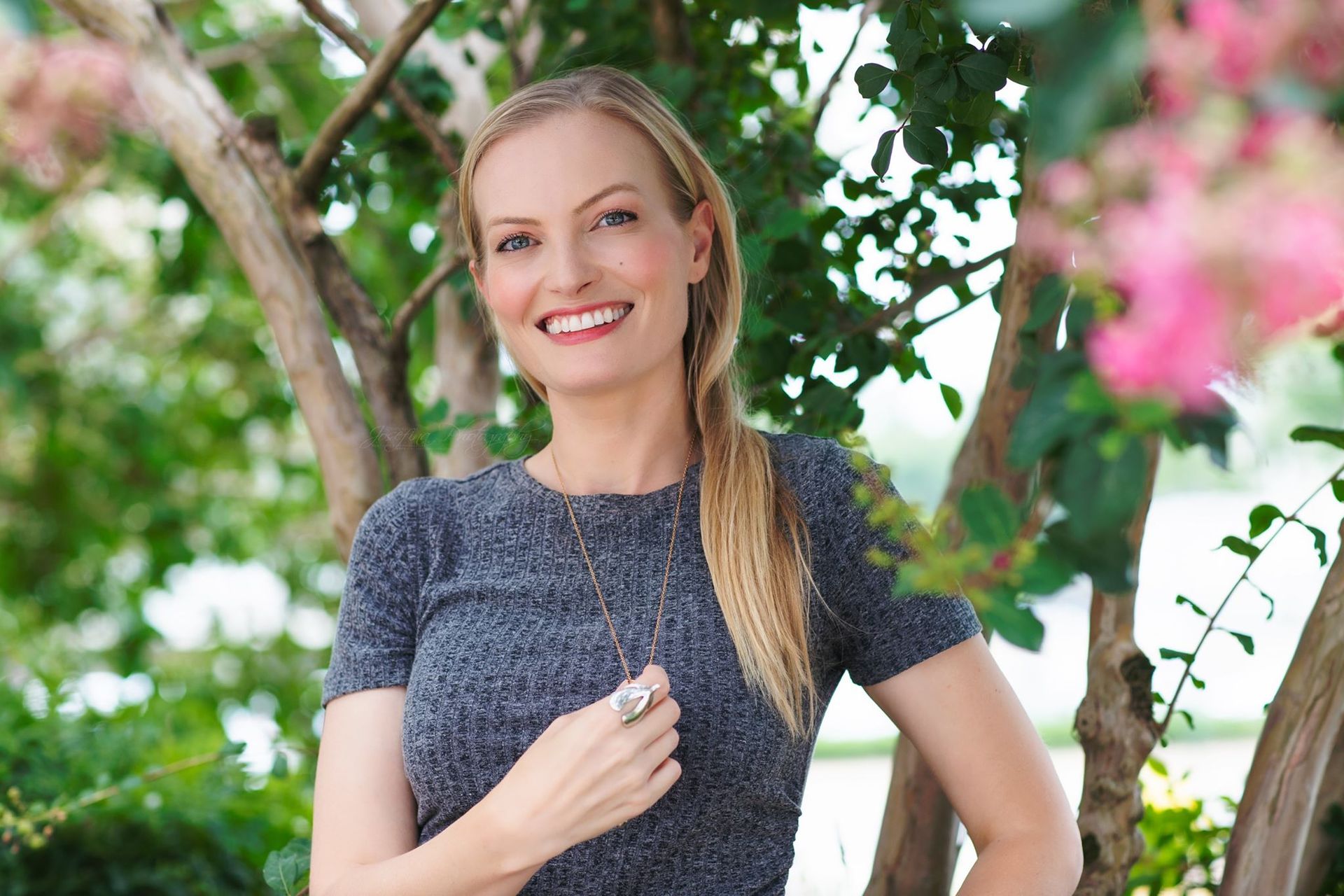If you knew a relationship would bring you meaningful, even euphoric highs and lead to major growth in your life, would you sign up for it ASAP? What if that same relationship also brought intense lows, serious drama, and excruciating frustration or pain?
All of the above are parts of what’s known as a karmic relationship. Given that the tough side isn’t typically evident early on, it’s easy to get sucked into one, according to experts. But for many people, plenty of good unfolds once they’re over. (Yes, they’re meant to be temporary.) They might even help you heal very old wounds, say proponents of these relationships — so old, in fact, they’re from a past life.
DailyOM spoke with a breakup and relationship coach, a psychic medium, and a Buddhist writer to learn more about karmic relationships, including signs to help you recognize you’re in one and healthy ways to move on from it.
What Is a Karmic Relationship?
The term “karmic relationship” is used to describe a relationship in which two people are drawn together to resolve unfinished issues or teach each other valuable lessons. And the journey through the relationship tends to be far from breezy.
While the term has gained popularity in modern relationship conversations, including tens of thousands of Instagram reels and TikTok videos on the topic, it seems to stem from a Buddhist and Hindu philosophy, says KM Huber, a Zen Buddhist practitioner and essayist who spoke with Daily OM: Unfinished business from past lives — meaning a life previously lived in a different body, as part of reincarnation — can bring souls together, for better or worse.
The partnerships are believed to derive from “you get what you give” energy (karma) from a past life of one or both people. So if you or a partner experienced a particular kind of trauma or hurt others in certain ways in a past life, the relationship is meant to bring opportunities for healing and growth.
While karmic relationships aren’t meant to last long term, “the growth that occurs from this divine union often is carried with us throughout our lifetimes,” says Raven, a psychic medium who created one of the top-ranking TikTok videos on the subject. And although they’re intense and challenging, she explains, they allow for “abundant growth, both spiritually and emotionally.”
These relationship pairings are common and likely to crop up at numerous points as you evolve, according to Raven. “Karmic partners come into our lives typically to bring attention to unhealed themes from the past, or to teach us lessons we will carry with us into the future,” she adds. And while most karmic relationships are romantic, you could also forge one with a friend, coworker, or family member.
Interested in learning more? Check out Karmic Relationships: How to Identify Them and Break Free
5 Stages of a Karmic Relationship
Each karmic relationship is unique, say experts, and can play out in a variety of ways. Here’s a look at the common stages of a karmic relationship.
1. A magnetic connection … at first
A karmic relationship might feel like a dream come true in the early days. “You will feel a sense of magnetic connection from the beginning, such as you would with a soulmate,” says Raven.
While that beginning is likely to feel powerful, those dreamy vibes are usually short-lived. Even as you’re soaking in the soulmate feelings, your intuition may sense red flags. You might have a gut instinct that “something is not right,” Raven explains, “despite the heart’s intention to keep proceeding forward.”
A karmic relationship involving a family member can play out in a few ways, Raven says. It could involve a cousin or sibling, for example, whom you grow rapidly close to at some point. In that case, you’d experience a similar magnetism during that closeness, only platonic.
2. A downward spiral that fuels drama
While you may go into a romantic karmic relationship believing you found “The One” (or, in the case of a platonic partner, your new BFF), says Raven, the intense beginning will soon give way to a major downslide.
“As quickly as this union began is how quickly the energy and the karmic partner changes,” she explains. “Suddenly what once was a caring, sweet, and romantic partner you fell for changes into a manipulative and cruel person you don’t even recognize.” And that, she says, understandably leaves you feeling confused, lost, and betrayed.
“Karmic partners come into our lives typically to bring attention to unhealed themes from the past, or to teach us lessons we will carry with us into the future.”
Or you might push each other’s buttons inadvertently, stirring up sensitivity around your respective wounds from a past or current life and bringing on bouts of drama that flare up increasingly over time, confirms Raven. From a Buddhist perspective, this mutual drama is a particular form of suffering, adds Huber, “with the cause rooted in the past.” In other words, while you don’t need to be religious to understand karmic relationships, this element, too, may have Buddhist origins.
3. Intense highs and lows
As your karmic relationship continues, intense pendulum swings become a mainstay. Emmi Fortin, a breakup and relationship coach and author of Who Is Your Red Dress? One Woman’s Quest to Break Up With a Love Addiction, learned this from experience.
“While I was in the relationship that could be described as karmic,” she tells DailyOM, “I felt the intense highs of being together not only through our passionate times, but literally just by standing next to him, receiving a text message from him, or when the phone would ring and his face would pop up on the screen. My stomach would flutter at the mere mention of his name. The world just seemed right when things were good, even for just those moments.”
In between the highs, the couple endured frequent breakups and arguments. “I felt like I could barely function due to the chaos happening inside my body,” Fortin says of the lows. “I’d definitely describe it as a powerful addiction and obsession with whatever was going on between us,” she says. “Unfortunately, it did lead to the deterioration of my own self-view and worth over time, which caused me to make other unhealthy choices in my life.”
Over time, karmic relationship rockiness will “drain everything from you,” says Raven, and you’ll feel emotionally and energetically spent. “You’ll notice you’re having the same arguments over and over again with your karmic partner, with no growth or conclusion occurring,” at least until the relationship ends.
4. Difficulty moving on
Before her relationship’s end and the growth that followed, Fortin was so hooked on the adrenaline surges and highs with her ex that she struggled to fully leave the relationship.
Raven sees similar challenges with her clients, many of whom become “stuck in the same cycle with the partner due to false hope,” she says. “Some people may feel that their karmic partner is their twin flame (a soul that’s incarnated or split between two bodies), which makes them stay in hopes that their karmic partner will eventually change,” she adds. Sadly, that change seldom, if ever, happens.
“The karmic partner is not meant to change themselves for the better,” Raven believes. Instead, they’re supposed to help you change for the better as you increase understanding of your worth, until you “step away from the harmful union,” she says.
Or you might both end up learning more about yourselves, but you still won’t thrive together long term. Meanwhile, codependency — also considered “relationship addiction” — is likely, which makes leaving especially tough. And research shows that codependent couples tend to struggle with managing relationship stress and stay together even when they perceive the relationship as problematic.
Karmic family bonds might seem especially difficult to move on from, but just because you’re related doesn’t mean you need to stay in each other’s lives when doing so would cause harm. “Karmic family members often find themselves in adulthood choosing to go no-contact or setting strict boundaries,” says Raven. While societal standards can make creating such distance tricky, she adds, “at the end of the day, choosing your peace and prioritizing your own health and well-being is so important.”
5. Life-changing lessons
Karmic relationships aren’t all bad, thankfully, as long as you find your way out, and apply the lessons learned moving forward. (Of course, if you’re feeling trapped in a toxic relationship or experiencing signs of abuse, seek prompt professional help.)
Fortin says she gleaned life-changing lessons about her beliefs about herself and the world from her turbulent relationship. “I was constantly challenged by this partner, which was draining but ultimately necessary for my own evolution,” she says, noting that she couldn’t appreciate those attributes at first.
“It was only after I wrote our story in the form of a memoir that I was able to not only reinvent myself due to my shifted perspectives, but most importantly, uncover the parts of me that had remained in the shadows,” Fortin explains. “I was able to release self-shame about behavior from what I considered to be my alter ego and marry it in a healthy way with my outer portrayal of self, finally accepting my full autonomy.”
Thriving After a Karmic Relationship
Today, able to live in her “own authenticity and truth,” Fortin feels liberated. “My journey through that relationship initiated my awakening to live with a more deeply aligned sense of purpose both personally and professionally,” she says.
If you’re feeling far from liberated after a karmic relationship, Fortin recommends finding suitable mentors. “When healing from this intense type of relationship, emotions run high and can cause you to freeze and stay stuck, so I highly recommend finding a professional who can offer structure and guidance around what next steps you can take consistently,” she says. If possible, find someone who relates to your experience, she suggests, “because there’s nothing quite like the validation that comes from someone deeply understanding where you’ve been.”
To support her own healing, Fortin hired life coaches and listened to interviews of people she felt she could learn from. “Their stories of growth, personal success, and happiness inspired me to have the courage to explore new paths for myself,” she recalls. “From this, I became voracious in acquiring the knowledge and skills I needed to get unstuck and progress.”
If self-doubt sets in at the end of a karmic relationship, Raven recommends recognizing how far you’ve come. “It takes a lot of courage to walk away,” she says. Meanwhile, practice patience, knowing that grieving the relationship — downsides and all — is natural. “Not only are you processing all the hurt you’ve just gone through, but you’re also grieving the parts of you that may feel lost along the way in this union,” she explains.
Take your healing one day at a time, Raven says, as healing isn’t linear or swift. Meanwhile, consider what you’ve learned and ways you might implement those lessons in the future. “Allow yourself to find forgiveness in yourself,” she adds, noting that copious self-care is key. “Before you know it, you’ll start to feel your energy come back to you, and you’ll start to feel that spark come back. And at the end of the healing stage, you’ll be able to look back with pride in yourself for choosing better.”
Around that time, you may also experience an incomparable sense of renewal. “The energy of karmic relationships truly embodies the phoenix’s energy to me,” says Raven. “Along the way, you learn to rise from the ashes and come back better, stronger, and wiser.”

